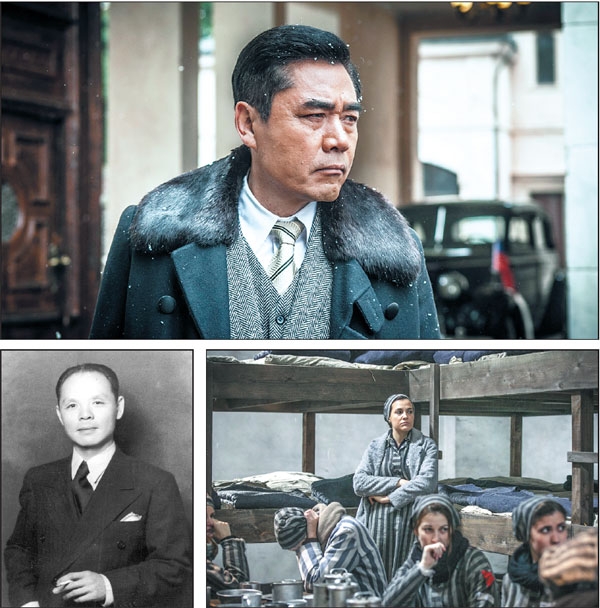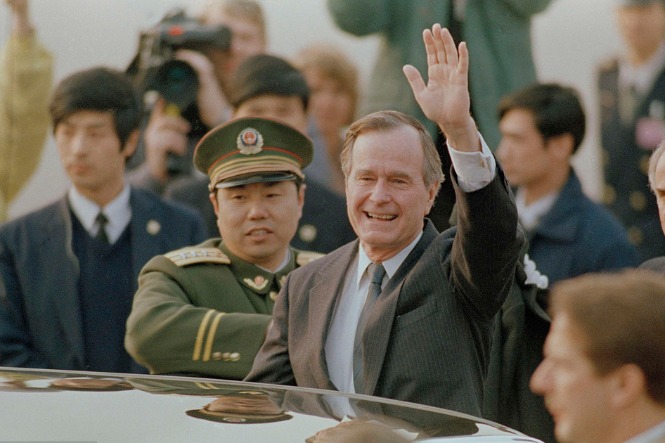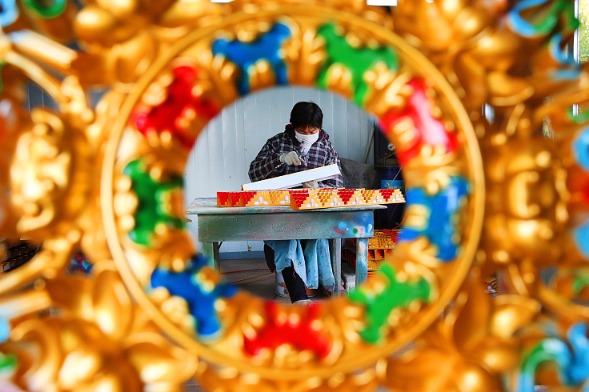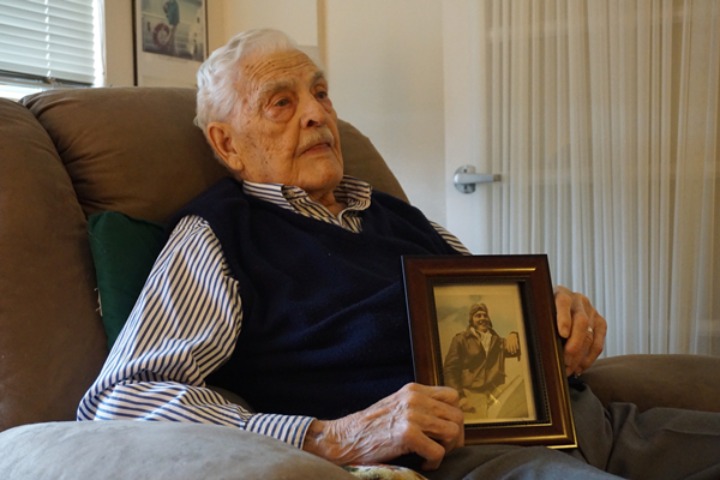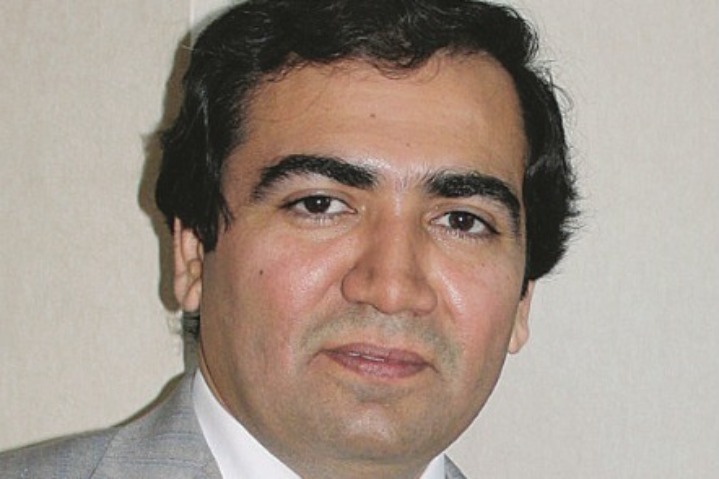Depiction of Chinese Schindler falls short
The first TV portrayal of the story of a Chinese diplomat, who risked his career to save thousands of Jews from the Nazis, attempts to shed light on a little-known piece of history but may have missed the mark, Raymond Zhou reports.
A new television drama based on the true story of a Chinese diplomat who saved thousands of Jews during World War II is the first attempt to publicize this little-known piece of history, but it has drawn mixed reviews from both critics and regular viewers, and from those with intimate knowledge of the historical events.
The Last Visa, a 46-episode series that began airing on New Year's Day on the satellite stations of Beijing and Jiangsu, got its inspiration from the story of Ho Feng Shan (1901-97), who was posthumously awarded the title of "Righteous among the Nations" for his "humanitarian courage" by the Israeli government in 2000.
The TV drama does not use Ho's name and even splits Ho into two characters.
A forum organized in January by one of the production companies, Jiangsu Broadcast and Television Station, which screenwriter Gao Mantang also participated in, was a laudatory fest for the heavily promoted show.
Pu Yu, president of the station, says that despite numerous screen stories about World War II in China and other countries, this one can shape China's image abroad and let the world know what Chinese did during that time.
Asked for her reaction to the series, Ho Manli, the daughter of Ho Feng Shan, responded via WeChat from San Francisco.
"I realize that dramatic license is often taken in fictionalizing historical events. However, since this drama is being heavily advertised as based on true events, there is some expectation and responsibility to at least get the historical context right."
A China Daily adviser since the paper's inception in 1981, Ho Manli first brought her father's story to light and has spent years on research and documentation.
She is candid in her evaluation: "I managed to watch three episodes of this series online and couldn't go on because it is so laughably unrealistic. This is an embarrassingly bad soap opera with poor production values, an obvious lack of understanding of both the European and Chinese history of that time, and ridiculous cartoonish characters."
According to Ho Manli, this television period drama inaccurately conflates historic events which took place over the course of seven years - when persecution of Jews escalated from terror and coerced expulsion from Nazi-occupied territories to the Final Solution, the extermination of Jews.
When her father was saving lives in Vienna from 1938 to 1940, the Nazis were trying to expel Jews and the dilemma for Jewish refugees was finding safe haven, Ho Manli says.
As if real drama were not enough, the TV retelling turns it into a lurid melodrama. The portrayals of the Viennese, of the Jews, of German officers, and even of the Chinese diplomats are all caricatures, Ho Manli says.
"There is a certain formality and European sophistication particular to the Viennese and to the Germans, not to mention educated Chinese - especially those in the diplomatic service of the Nationalist China era - who behaved with cultural refinement and strict decorum. It's nothing like what is depicted in the show," she says.
Xu Jiang, a critic, also found it jarring that the main Chinese characters, who were supposed to hail from Shanghai and Nanjing, speak with a distinct Beijing accent.
"Even the look and hairdo of Pu Jizhou, the protagonist, is a far cry from period authenticity," says Xu.
"The German soldiers marching in Vienna walk like American movie stereotypes. Shouldn't the actors be at least shown Leni Riefenstahl's documentary Triumph of the Will to learn how to goosestep?"
"One of the main Jewish characters in Schindler's List is a composite of several people. However, in depicting Oskar Schindler, the other major characters and the story itself, director Steven Spielberg hewed closely to history," Ho Manli says, by way of comparison.
The Chinese television story opens with Pu Jizhou running away from his wedding - an arranged marriage - to take a job as a visa officer in Vienna.
"This is totally ludicrous; one can't just run off to join the diplomatic service. There is a formal application and vetting and training process. Postings abroad are designated by the foreign ministry, not by any personal whim," Ho Manli says.
Gao Mantang, one of the screenwriters, views the drama series as "a testament of the viability and magic of realism".
Gao says he made three trips to Prague, which is the main location for the production standing in for post-Anschluss Vienna, and also stood outside the walls of the concentration camps, "feeling the complexity of human suffering and the light of humanitarianism".
Gao is especially proud that he took pains to recount the family conflict of a Nazi officer, refusing to "demonize" him but using many details to portray his fall from human to devil. "This has never been attempted on a Chinese screen," he says.
"One rainy day, I was standing in a place where thousands of Jews were buried. I could see the crosses in the distance. I was awed by life and that emotion seeped into my words."
He also explains that he had done research to find what diplomats could or could not do in other countries. "One must not make up details as one sees fit," he says.
Regarding those details, Ho Manli says: "Besides the unbelievable plotline, the details - from the sign in front of the Chinese diplomatic mission, which should have been a bronze plaque in German rather than what looks like a 'cultural revolution' (1966-76) poster in Chinese, to the official rank and work of the diplomats, to the ill-fitting costumes, to using Christian crucifixes for Jews - show plain ignorance."
Regular viewers gave mixed reviews. The series scored 6.5 out of 10 points on Douban, a major review site. Some viewers said they were deeply moved by the story, which they admit they had never heard of, while others found many problems with the dramatization.
About the only consensus are the accolades for Chen Baoguo, a veteran television actor who is in one of the two principal roles. Wang Lei, the younger actor, received largely negative reviews "for his lack of temperament and acting chops".
On Zhihu, a knowledge website with contributions from erudite viewers, the discussions have been heavily critical, focusing on the show's many unwarranted liberties with historical facts.
"It truly astounds me that a great story was given such a ridiculous retelling," wrote Zhang Jia.
Ho Manli would agree. "I'm afraid such a spurious depiction is not even good fiction, and it is ultimately a disservice to my father, to the Jewish survivors, to the Chinese audience, to China's image and to history," she says.
Contact the writer at raymondzhou@chinadaily.com.cn
| The Chinese TV drama The Last Visa, starring Chen Baoguo (top), is inspired by the late Chinese diplomat Ho Feng Shan's heroic deeds during World War II. Ho (above left) served as the Chinese consul general in Vienna between 1938 and 1940.Photos Provided To China Daily |
(China Daily USA 02/09/2017 page9)







